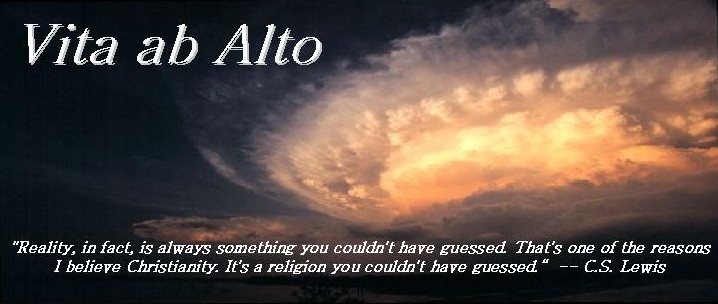Christian Carnival LXXVI

This week's Christian Carnival is up at ChristWeb. Haven't had time yet to peruse it at length (much pro writing (and blocking) going on...) and I don't have an entry (again), but it's always worth a look.
Monk
Update: The always-excellent Viewpoint has a further fisking of Doug "Christer" Ireland, about whom I wrote in last week's Christian Carnival link-post. Impeccable logic and fine writing, as usual:
Doug Ireland, author of the frantic call to arms against the coming "Christers" which we commented upon last week, responds to his critics:
Just so there can be no confusion, I have never made any secret of the fact that I'm a life-long atheist, and proudly so....
I came up with the word "Christer" to distinguish those Protestant fundamentalists and ultramontane Catholics whose politicized version of Christianity impels them to seek to impose their views on others through public policy and the State -- as opposed to ordinary believers who believe their faith is a private and personal matter, not a fulcrum for censorship of those who think or act differently.
Why on earth does an atheist object to someone imposing his values on others?
First, it's difficult to name legislation which does not impose somebody's morality upon the rest of society. Everything from desegregation to affirmative action to welfare regulations to environmental regulations to laws prohibiting gambling, prostitution, public lewdness, drug use, capital punishment, bribery, and so on all presuppose moral values that might not be shared by many of those who are subject to the pertinent laws. Should these laws never have been enacted? Should they be rescinded?
If the atheist is correct in believing that we live in a world without God then a man has a "right" to try to do whatever he wishes to do. In a world without God, might makes right, so anything one is able to do, one has a "right" to do.
If the atheist objects to this, he might be asked what it is, exactly, upon which he bases his conviction that I have no right to impose my values. Is it the law? If I have the power to change or shape the law to conform to my desires then that objection fails. Is it that a right to impose one's will upon others robs the other of his worth and dignity as a human being? So what?
An outstanding point--one that I've made here before.
While you're at it, check out this Viewpoint post too:
Dennis Prager argues that Judeo-Christian religion is antithetical to nature worship but that secularism often leads to it.
When man ceases to believe in a transcendent God he doesn't believe in no god at all, as Chesterton reminds us, he embraces all manner of substitutes. Man's innate religiosity drives him to find something beyond himself toward which to direct his life. In the twentieth century the dominant substitutes were socialisms (communism and nazism), evolutionary science, consumerism, and humanism. By devoting one's life to one of these, or a combination thereof, some people were able to mask the meaninglessness of a life which inevitably ends in death. These ersatz religions were spiritual anodynes that deadened the pain of life's utter emptiness and pointlessness.
Since all these gods have ultimately failed to provide fulfillment to the average man the twenty first century might well see, as Prager's column suggests, a return to paganism and nature worship. If so, the history of western civilization will have come full circle.
Brilliant. Read the Prager column, too.
Monk



